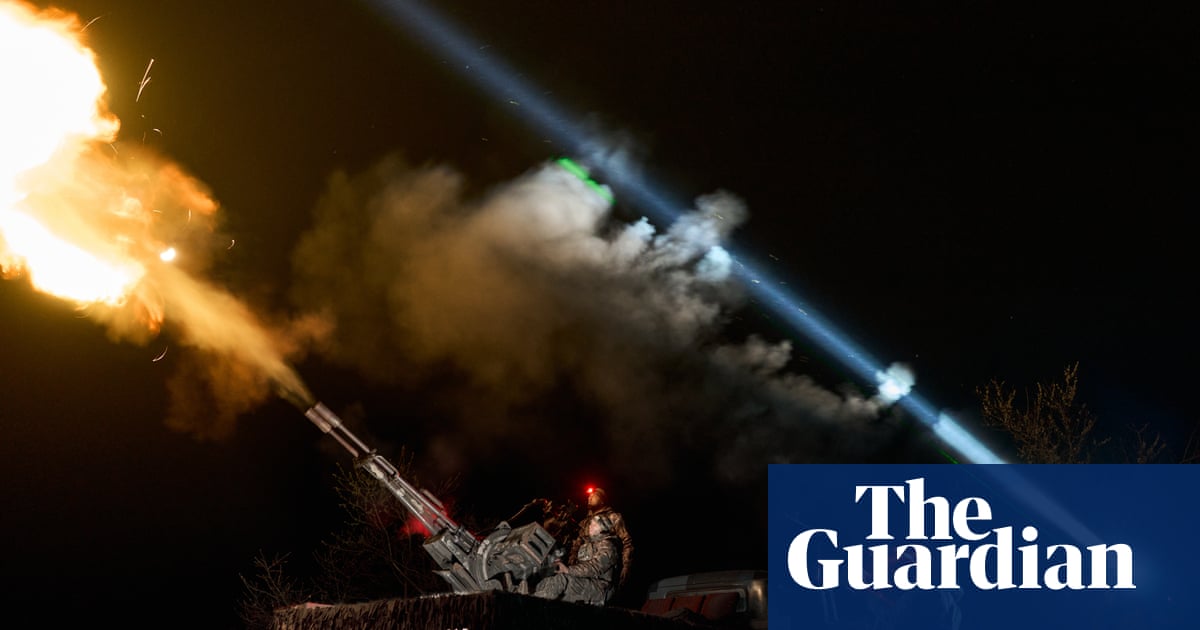
White House officials have said they are taking a wait-and-see approach until the House speaker, Mike Johnson, releases details of his plan to pass aid for Ukraine. “It does appear at first blush, that the speaker’s proposal will, in fact, help us get aid to Ukraine, aid to Israel and needed resources to the Indo-Pacific for a wide range of contingencies there,” said John Kirby, Joe Biden’s national security spokesman. “But we’re waiting to get a little bit more detail before we say one way or the other.”
The speaker is considering a complicated approach that would break apart the already Senate-approved $95bn aid package and send it to separate votes, then either stitch it back together or send the components to the Senate for final passage, and potentially on to the White House for the president’s signature. It would require the speaker to cobble together bipartisan majorities with different factions of House Republicans and Democrats on each measure.
Johnson is preparing a fourth measure that would include various Republican-preferred national security priorities, such as a plan to seize some Russian assets in US banks to help fund Ukraine, and another to turn the economic aid for Ukraine into loans. The New York Post has meanwhile published Republican-aligned polling that shows a majority of Republican voters in electorates crucial to the November election back US assistance for Ukraine’s fight back against the Russian invasion.
Russian forces are exploiting the delays to US aid to switch from fighting for individual positions and instead manoeuvre on the battlefield again, the Institute for the Study of War has warned. “Ukraine cannot hold the present lines now without the rapid resumption of US assistance, particularly air defence and artillery, that only the US can provide rapidly and at scale. Lack of air defence has exposed Ukrainian frontline units to Russian aircraft that are now dropping thousands of bombs on Ukrainian defensive positions for the first time in this war. Ukrainian artillery shortages are letting the Russians use armoured columns without suffering prohibitive losses for the first time since 2022.”
The Czech prime minister, Petr Fiala, said 20 countries had pledged enough to buy 500,000 artillery shells for Ukraine outside Europe within the so-called Czech initiative. The Czechs said in March they were able to collect about 800,000 shells in total for Ukraine outside the continent. Fiala said there was no reason why the donors could not “deliver one million more in the next 12 months … I want to highlight that this initiative is not a one-time project. Our goal is to create a long-term system of ammunition supplies for heavy weapons. This will directly help to change the situation on the frontline.”
Ukraine’s president, Volodymyr Zelenskiy, has signed a mobilisation bill into law with the aim of boosting troop numbers. The parliament’s website said the bill had been “returned with the signature of the president” on Tuesday, after receiving final approval from lawmakers last week. The new law toughens penalties on draft dodgers, incentivises conscription and obliges men to keep their military registration details with the authorities up to date.
On PBS NewsHour, Zelenskiy said a lack of air defence missiles prevented Ukraine from thwarting a Russian missile attack last week that destroyed the Trypilska thermal power plant. His comments gave fresh urgency to Kyiv’s pleas to be sent more military weapons from its allies as the war appears to have turned in the Kremlin’s favour over recent months.
German weapons manufacturer Rheinmetall is to build an ammunition plant in Lithuania. Germany’s largest military equipment maker and the Lithuanian government signed a letter of intent to set up a factory to make 155mm artillery shells in the EU and Nato member country.
Ukraine said it had identified almost 37,000 people, including military personnel, who are unaccounted for since Russia launched its full-scale invasion in February 2022.
Xi Jinping has agreed to back a Ukraine peace conference in Switzerland, Germany’s chancellor said after meeting the Chinese president. “China’s word carries weight in Russia,” said Olaf Scholz. “I have therefore asked President Xi to influence Russia so that Putin finally calls off his senseless campaign, withdraw his troops and ends this terrible war.” Zelenskiy welcomed the development.
Beijing has called for a “political settlement” to the war, which western countries said could enable Russia to hold much of the territory it has seized in Ukraine. China has also deepened its ties with Russia and, according to a US assessment cited by the Associated Press, is surging the supply of machine tools, microelectronics and other technology that Russia in turn is using to produce missiles, tanks, aircraft and other weaponry for use in its war against Ukraine. Chinese and Russian entities have also been working to jointly produce unmanned aerial vehicles inside Russia, and Chinese companies are likely providing Russia with nitrocellulose used in the manufacture of ammunition, US officials said.